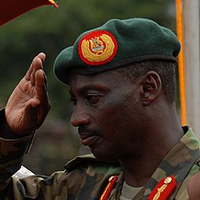KAMPALA, Uganda -- Nearly two weeks after three bombs exploded in Uganda's usually tranquil capital, killing at least 73 people and injuring scores more, the investigations into the attacks seem to be moving swiftly. Experts from countries including the United States and Israel are providing forensic assistance to help piece together the operation and trace those behind it. Police say they have arrested more than 40 people, including 11 Somalis and 16 Pakistanis, and images of two suspected suicide bombers, reconstructed by Interpol, were released earlier this week.
In claiming credit for the attacks, the Somali insurgent group al-Shabab effectively announced its debut as an international terrorist outfit, purportedly punishing Uganda for contributing troops to the African Union peacekeeping mission in Somalia (AMISOM).
With Kampala and other parts of Uganda still tense, the apparent progress has provided some reassurance. But serious questions remain about what the Ugandan government ought to do next, whether it is capable of doing so, and which other countries will step forward to help.

